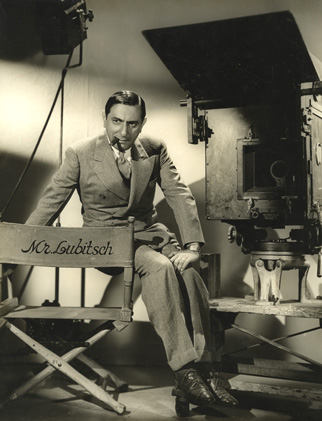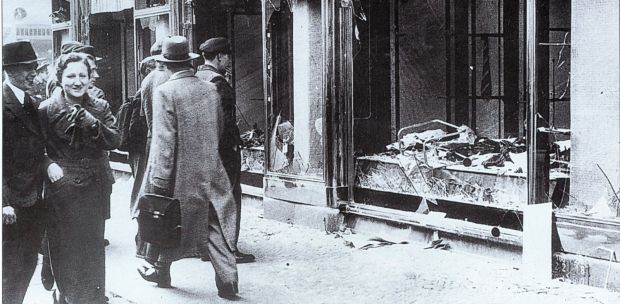
Max Ehrlich (1892-1944) was one of the most celebrated actors and directors on the German comedy and cabaret scene of the 1930s. But his brilliant career was brutally interrupted by the rise of Nazism and his resulting deportation in 1942 to Westerbork concentration camp in Holland. Amazingly, there behind the walls and barbed wire, Max Ehrlich formed a theater troupe composed of fellow prisoners – the majority of them also famous Jewish show business personalities – and produced high quality musical and comedy revues. This artistic activity provided the means for everyone concerned, audience and actors alike, to retain a small measure of humanity, free their minds – if only momentarily – from the tragedy of daily life and nourish the illusion of survival. But, in the end, comedy did not prevail: like almost all of his colleagues from this theater of despair, in 1944 Max Ehrlich was transported to Auschwitz and gassed.

Born on 25 November 1892, Max Ehrlich began his career as a stage actor in the 1920s, quickly building a reputation as a vital force on the Berlin cabaret scene. A popular parodist and poet, he performed with many other Jewish and leftist artists during the Weimar years. However, like most of his fellow performers, his work was largely apolitical or only subtly critical. Ehrlich also became a successful movie actor, with more than forty movie credits to his name by the time the Nazi take-over in 1933 abruptly ended his career.

Max Ehrlich took part in over 40 movies and directed ten of it in his career. He published several records and wrote the book “From Adalbert to Zilzer”, in which he wrote humorous stories and anecdotes about many of his colleagues.

With most performance venues either shut down or prohibited to him, that year he decided to assess the scene in Austria. However, in Vienna as in Berlin, Nazis harassed him while he was on stage, ultimately making his act impossible. Reluctantly he moved through Switzerland on to the Nerherlands, where he was already well-known as a touring comedian and cabaret star. (German cabaret was popular in continental Europe during the inter-war years). After two years touring Amsterdam, Zurich and Bern with other émigré artists, however, homesickness and the hope that things would get better drove him back to Berlin.
In 1935, Ehrlich returned to Nazi Germany. Jewish entertainers once again were permitted to perform there but only within the framework of the Jüdischer Kulturbund (Jewish Cultural Union) and exclusively in front of Jewish audiences.
In 1937 he left Germany and with the help of Ernst Lubitsch he went to the USA.

Unfortunately he was not able to get work there, so he made the fatal decision to return to Europe


Ehrlich was named director of the Kulturbund’s light theatre departments. However, following the 1938 pogrom “Kristallnacht,” he decided to leave Germany definitively.

Both of his farewell performances immediately sold out, so that a third presentation on 2 April 1939 was added. Here, in front of a full house of fans, calling out their affection and encouragement, Ehrlich made his final appearance in Germany.
Subsequently, he returned to the Netherlands once again and joined Willy Rosen’s “Theater der Prominenten” (Theatre of Celebrities),
until in 1943 ,like so many of his colleagues– Ehrlich was imprisoned in the Westerbork concentration camp. While at Westerbork, he created and became director of the “Camp Westerbork Theatre Group,” a cabaret troupe that during its eighteen-month existence staged six major theatre productions, all within the concentration camp’s confines. A majority of the actors were famous Jewish show business personalities; prominent artists from Berlin and Vienna, such as Willy Rosen, Erich Ziegler, Camilla Spira, and Kurt Gerron; or well known Dutch performers, like Esther Philipse, Jetty Cantor, and Johnny & Jones. At its high point, the group counted fifty-one members, including a full team of musicians, dancers, choreographers, artists, tailors, and make-up, lighting, and other technicians, as well as stage hands.
Most of the shows combined elements of revue and cabaret –songs and sketches– but, on one occasion, the program included a revue-operetta, Ludmilla, or Corpses Everywhere—a production whose theme sadly was a premonition of the actors’ and other prisoners’ fate. While some scenes were implicitly critical, of course, the Theatre Group at no time produced openly political cabaret or directly attacked the Nazi regime.

To do so would have violated the most fundamental condition for the troupe’s and its members’ survival, as life in Westerbork was dominated by the persistent threat of deportation on the next transport to an unknown but deeply feared fate in the East. So, standing helplessly and unaided before the fascists’ executioners and their lackeys, the Theatre Group, of necessity, limited itself to entertaining its audiences and to momentarily distracting them from the surrounding horrors. But in so doing, it also gave their captive audiences renewed hope and the courage to face an otherwise unbearable existence.
Doubtlessly, this artistic activity provided the means for everyone concerned, audiences and actors alike, to retain a small measure of humanity, free their minds –if only momentarily– from the tragedy of daily life and nourish the illusion of survival.
During the summer of 1944, increasing numbers of transports carried Westerbork’s prisoners to the extermination camps in the East. Of 104,000 camp inmates, fewer than 5,000 survived. In the last transport to leave Westerbork, on 4 September 1944, Ehrlich was number 151 on the list of victims. Eyewitnesses recount that, after reaching Auschwitz, he was recognized by a Hauptsturmführer. As a result, Ehrlich was subjected to additional torture: brought before a group of SS officers holding their loaded guns aimed at him, he was ordered to tell jokes. On 1 October 1944, Ehrlich was murdered in the Auschwitz gas chambers.

Donation
I am passionate about my site and I know you all like reading my blogs. I have been doing this at no cost and will continue to do so. All I ask is for a voluntary donation of $2, however if you are not in a position to do so I can fully understand, maybe next time then. Thank you. To donate click on the credit/debit card icon of the card you will use. If you want to donate more then $2 just add a higher number in the box left from the PayPal link. Many thanks.
$2.00


You must be logged in to post a comment.